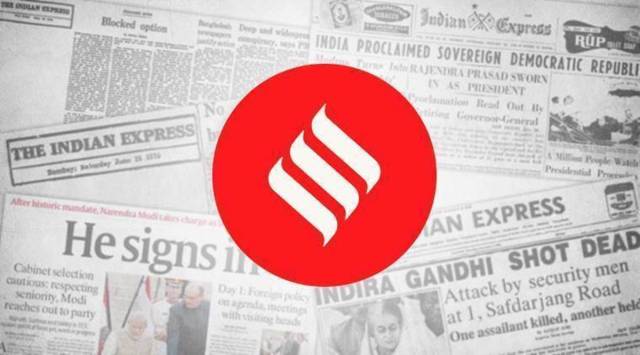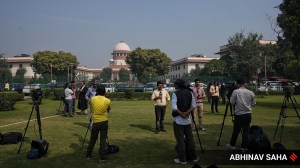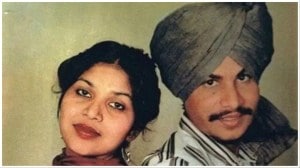- India
- International
Without prejudice
Madras High Court sends loud and clear message against pathologising queer lives, lays out welcome agenda of inclusion.
 The judgment is remarkable for the way it places a conversation about acknowledging and “unlearning” prejudice at its heart, for the way it clears a space for acceptance of different identities and ways of cohabitation.
The judgment is remarkable for the way it places a conversation about acknowledging and “unlearning” prejudice at its heart, for the way it clears a space for acceptance of different identities and ways of cohabitation.Three years after the Supreme Court struck down as unconstitutional a repressive law that criminalised homosexual relations, the Madras High Court has taken significant steps to blunt the sharp edge of discrimination against the LGBTQIA+ community. In an expansive set of guidelines that build on the spirit of the 2018 Navtej Johar v Union of India and the 2014 Nalsa v Union of India judgments, Justice N Anand Venkatesh barred the dubious practice of “conversion therapy” that claims to change the sexual orientation of queer people or the “gender identity of transgender people to cis-gender”. The message has gone out, loud and clear, from a constitutional court, against pathologising the life choices of homosexual and gender-nonconforming individuals and “curing” them by traumatic procedures that violate their innate sense of selfhood. The court, which was hearing the plea of a lesbian couple who had fled from Madurai to Chennai and appealed for protection against police harassment, also went on to direct the police to close missing persons complaints if an enquiry confirms them to involve consenting adults of the LGBTQIA+ community. The guidelines also direct the state to make provisions at anganwadis and short-stay homes for the shelter of transpersons and organise awareness programmes for all sections of society, from parents to judges, prison officials and teachers. From changes in school and college curricula, gender-neutral washrooms and training health workers to accept gender non-conforming children without mockery, the court lays out an ambitious blueprint for inclusion. “This court expects the departments/authorities … to implement these guidelines … not for the sake of complying with a judicial fiat but to ensure that this society evolves, and the LGBTQIA+ community is not pushed out of the mainstream,” it said.
The judgment is remarkable for the way it places a conversation about acknowledging and “unlearning” prejudice at its heart, for the way it clears a space for acceptance of different identities and ways of cohabitation. In the many hearings of the case, Justice Venkatesh put his own lack of knowledge about the LGBTQIA+ community on record, and sought out psychologists and members of the trans-community to educate himself. “Ignorance is no justification for normalising any form of discrimination,” the judge said. The court has also, rightfully, pointed out the need for legislatures to take forward the task of “mainstreaming” the LGBTQIA+ community that the judiciary has initiated through its landmark interventions.
The LGBTQIA+ movement is not only about greater representation in public spaces and institutions, but also about an idea whose time should have come long ago — that societies become roomier, less violent by accepting fluidity of sexuality and orientation as legitimate expressions of human difference. The Madras High Court does well to recognise that prejudice against sexual minorities has an expiry date and that societies must evolve to find ways of inclusion. It does more — it shows us how.
EXPRESS OPINION
More Explained
Apr 26: Latest News
- 01
- 02
- 03
- 04
- 05


































